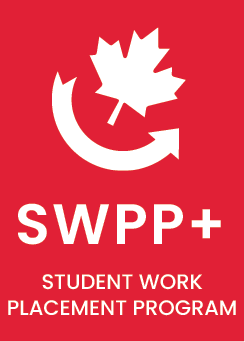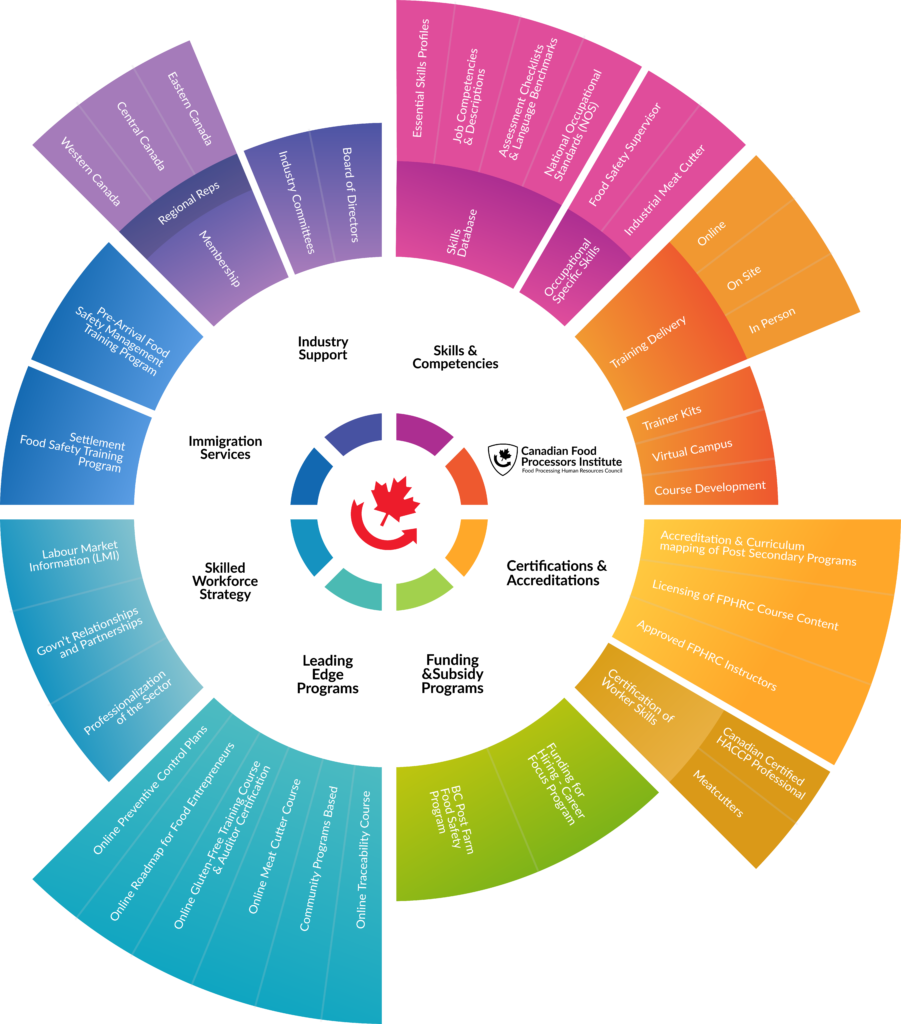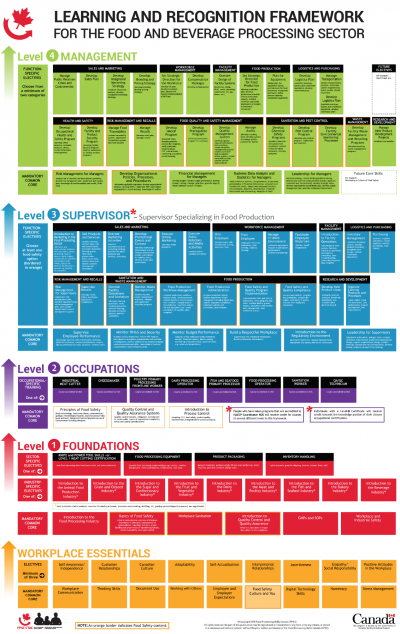Your leader in skills development.
A remarkable 1 in 8 Canadians are employed in the Canadian food and beverage manufacturing industry. When you think of businesses in this industry that are located across the country, think of the dedicated and skilled individuals that make certain food is produced with the highest safety and quality. It is easy to understand why Canada’s food and beverage sector is a leader around the globe. At Food Processing Skills Canada, it is our job to support people with the best skills development and training.
We focus on businesses by providing labour market analysis, funding support, e-learning, and certification. And with our Learning & Recognition Framework – the first of its kind in Canada– curriculum, courses and accreditation will become aligned.







